The technologies that will drive the Fourth Industrial Revolution have health baked into most of them, based on the Top 10 Emerging Technologies of 2023, a flagship report from the World Economic Forum,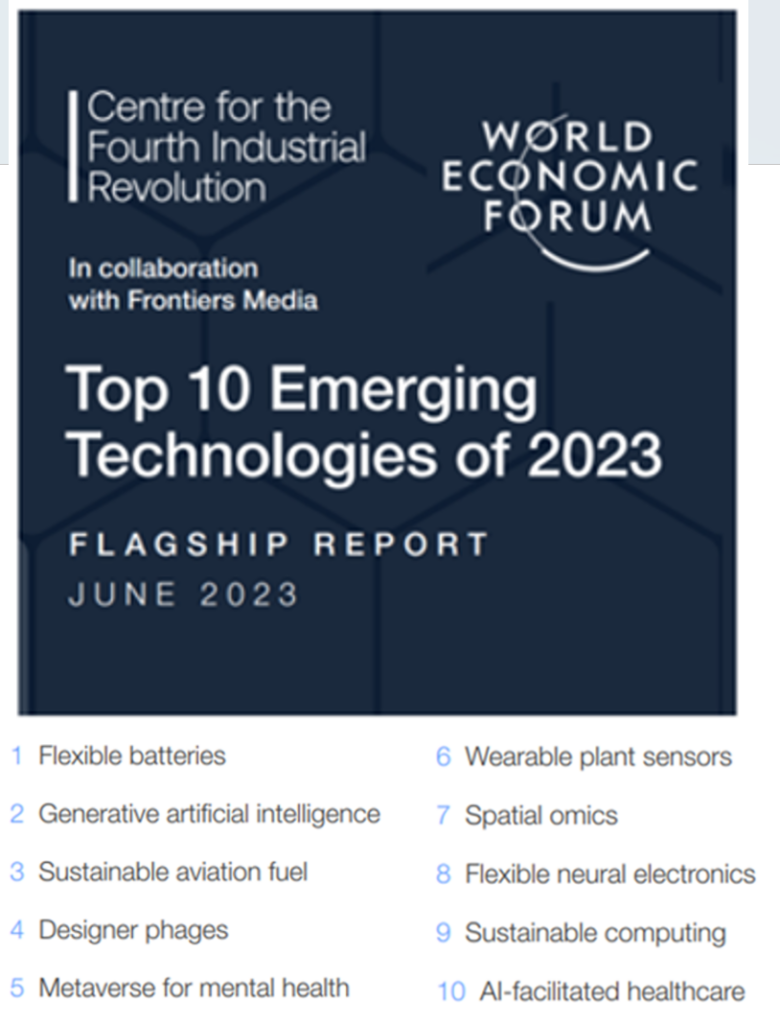
Two of the ten technologies making up this forecast directly speak to health and health care”
- AI-facilitated healthcare, and
- The metaverse for mental health.
But seven of the remaining eight all address health somewhere in their discussions, and even the tenth non-obvious tech — #3, sustainable aviation fuel — would resonate with many researchers working on the opportunity for health care in space (notably my favorite person working on this, Dr. Dorit Donviel, who directs the NASA-funded Translational Research Institute for SpaceHealth at the Baylor College of Medicine).
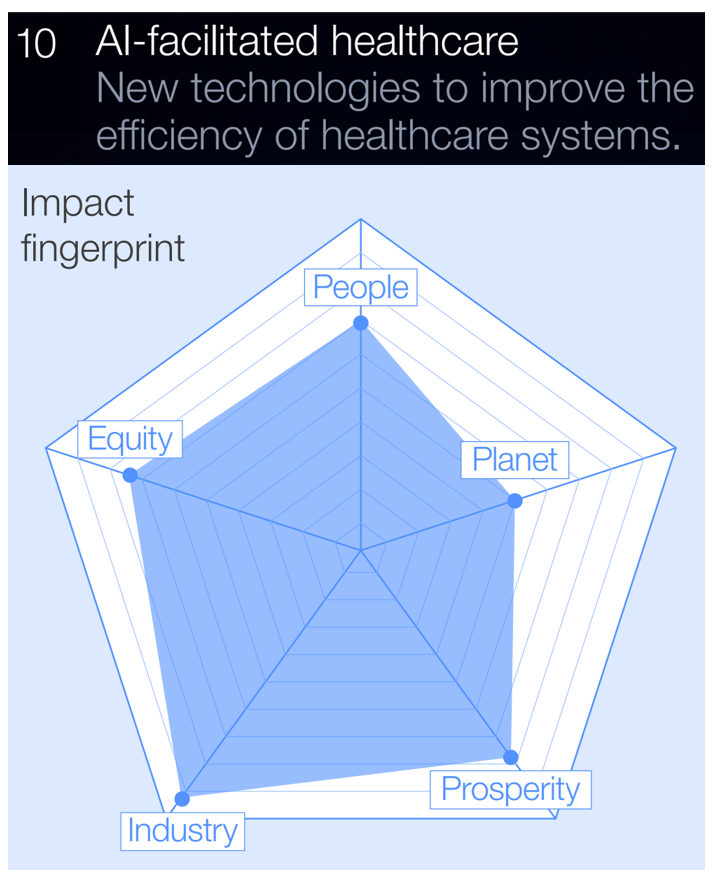
The spiderweb diagram illustrates WEF’s “impact fingerprint” analysis of AI-facilitated healthcare. Clearly, WEF foresees AI’s impact on healthcare could have the greatest influence on industry, followed by equity and prosperity.
“The shortcomings of healthcare systems all over the world became abundantly and horrifyingly clear during the early days of the COVDI-19 pandemic, when the sustainable workloads of many hospitals were rapidly exceeded,” WEF explains.
This turbocharged government and academic teams to deploy AI and machine learning into healthcare, WEF asserts, to both aid in addressing workflows in the public health crisis and to help predict future epidemic shocks.
This section of the report identifies examples of AI-baked health care programs on a global basis, including Canada’s use of AI for optimizing access for health care services, and the use of AI in India to expand health care capabilities to rural and under-served areas. 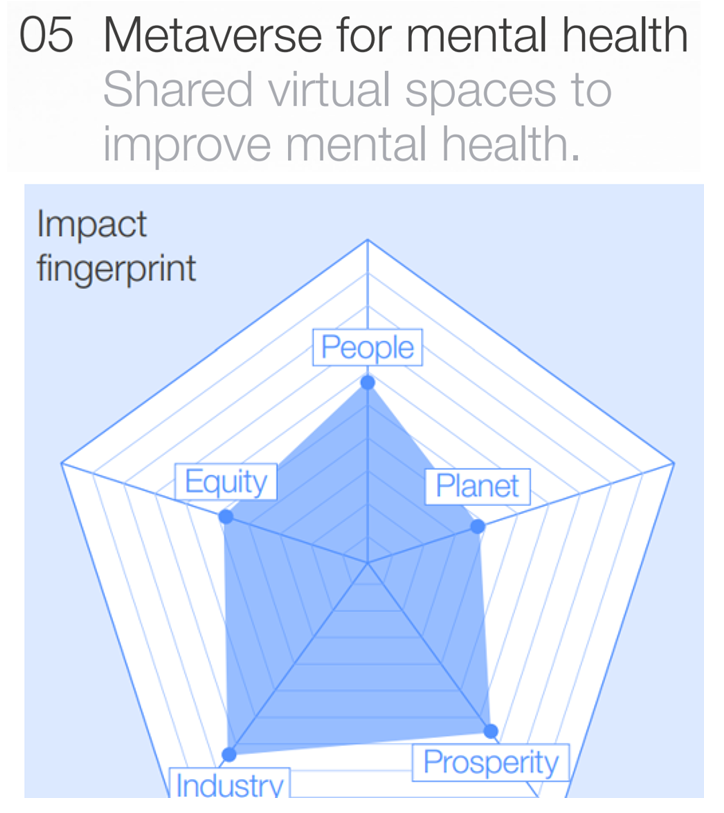
Calling out the U.S. Surgeon General Dr. Vivek Murthy’s call-to-action to address “one of the country’s most pressing public health issues of our time,” the state of mental health gets a starring role in WEF’s Top 10 tech issues extolling the benefits of shared virtual spaces to improve peoples’ mental well-being.
WEF discusses how gaming platforms are already being used for mental health treatment, with growing clinical evidence for their application citing the UK-based Xbox-based Ninja Theory program and other VR-enabled guided meditation projects.
The report also identifies Emerge Wave 1 which uses ultrasonic waves to simulate touch and noninvasive neuro=technologies to provide feedback in response to a person’s emotional state.
The spiderweb diagram shows that WEF considers metaverse-mental health applications to most directly impact industry, prosperity, people and equity.
This is the 11th year of this WEF study. Previous versions have raised the prospects of new technologies such as,
- CRISPR-Cas9 which is now being used to bolster drought-resistant crops to supplement food supply
- Messenger ribonucleic acid (mRNA) vaccines which saved many lives during the coronavirus pandemic, and,
- The emergence of AI-discovered drugs entering clinical trials.
The 2023 research curated input from over 90 expert voices from 20 countries.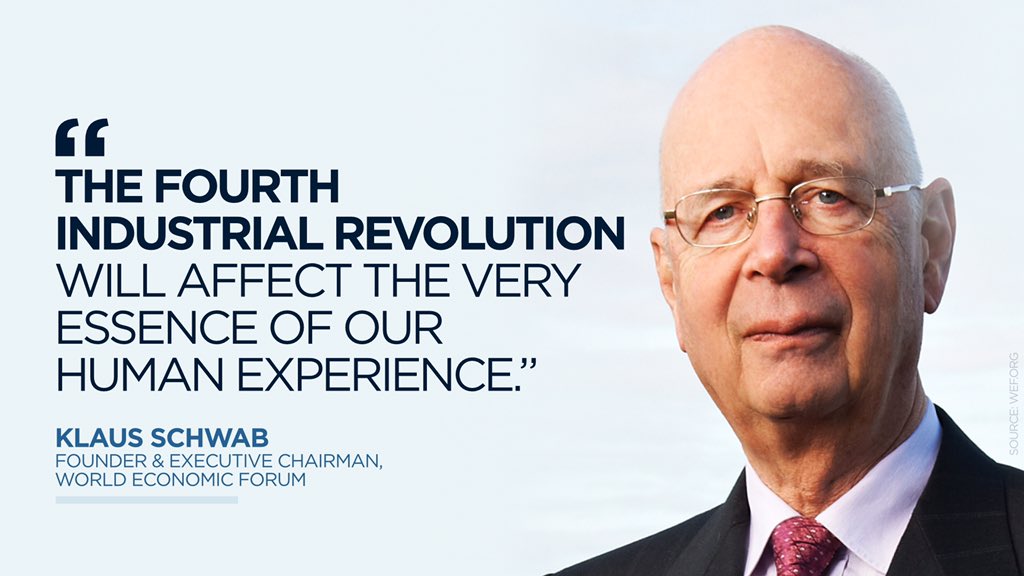
Health Populi’s Hot Points: The Co-Chairs for this year’s project write in their Preface,
“The driving forces behind the innovations featured in this special report are the acceleration of global connectivity, the rise of AI, along with the convergence of the physical, digital and biological worlds,”
noting that the Fourth Industrial Revolution is intimately tied to public health.
The WEF report reinforces my call for health citizenship, both within the U.S. and globally, where we all invest in health and well-being for ourselves, the people we love, our co-workers and communities, and indeed for the entire planet. What happens in Wuhan or Vegas doesn’t stay in those postal codes…this we know for sure.
Klaus Schwab, who founded WEF and is its Executive Chairman, wrote a book about the Fourth Industrial Revolution which he says, “will affect the very essence of our human experience.”
As you go about your daily work and conversations, whether formal or casual, remember that we are all connected. Our personal choices shape those of our immediate intimate social networks, and their networks’ networks. What an awesome opportunity for us to start a flywheel reaction of a virtuous cycle of health for me, for you, for us, for all.


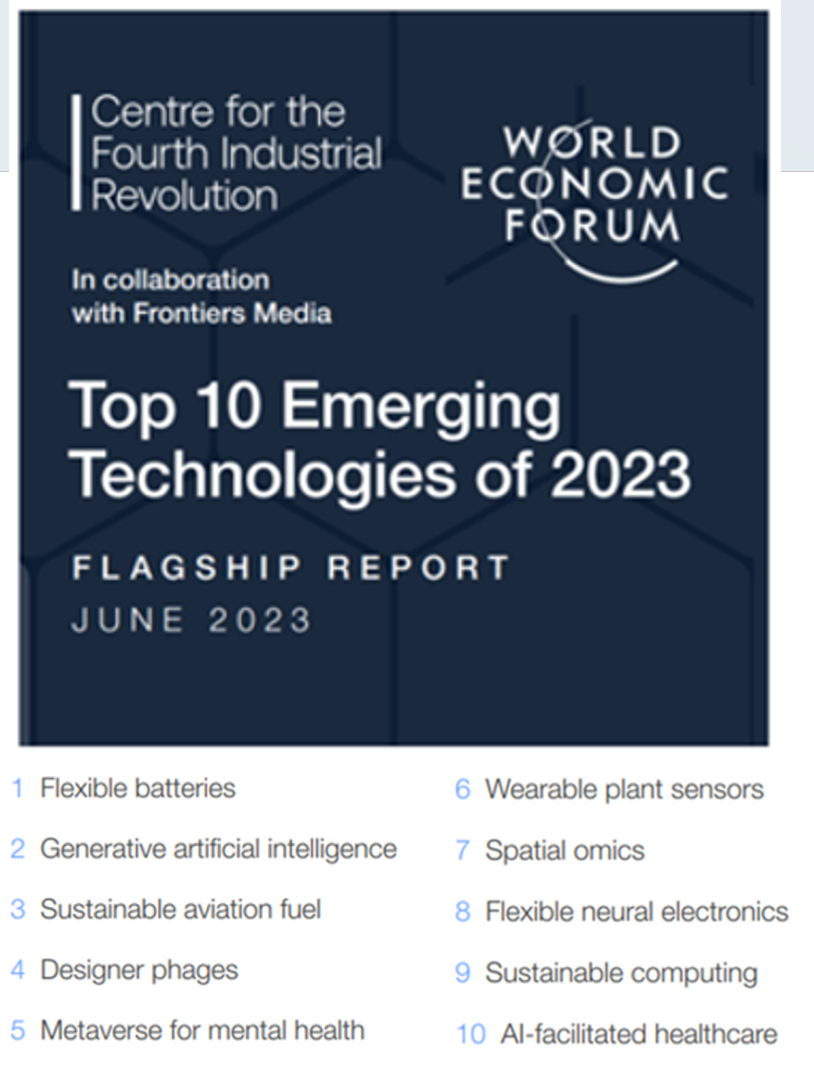


 I am so grateful to Tom Lawry for asking me to pen the foreword for his book, Health Care Nation,
I am so grateful to Tom Lawry for asking me to pen the foreword for his book, Health Care Nation,  I love sharing perspectives on what's shaping the future of health care, and appreciate the opportunity to be collaborating once again with Duke Corporate Education and a global client on 6th May. We'll be addressing some key pillars to consider in scenario planning such as growing consumerism in health care, technology (from AI to telehealth), climate change, and trust -- the key enabler for health engagement or dis-engagement and mis-information. I'm grateful to be affiliated with the corporate education provider
I love sharing perspectives on what's shaping the future of health care, and appreciate the opportunity to be collaborating once again with Duke Corporate Education and a global client on 6th May. We'll be addressing some key pillars to consider in scenario planning such as growing consumerism in health care, technology (from AI to telehealth), climate change, and trust -- the key enabler for health engagement or dis-engagement and mis-information. I'm grateful to be affiliated with the corporate education provider  Thank you FeedSpot for
Thank you FeedSpot for